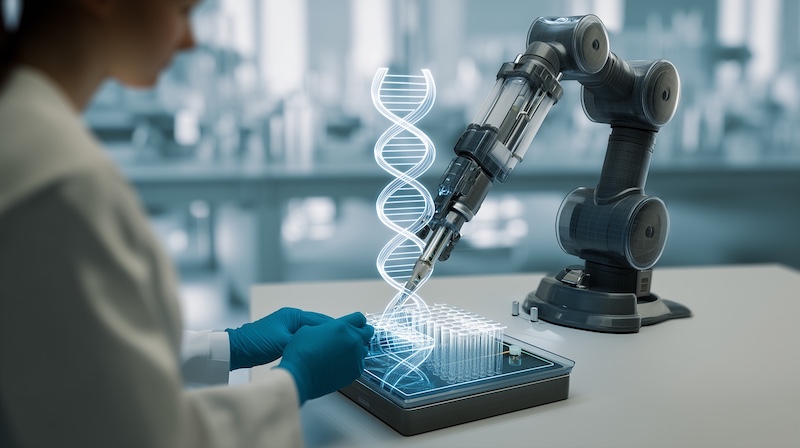A globally connected ecosystem of autonomous laboratories could redefine how science is conducted, accelerating discovery while lowering barriers to participation, according to a new expert viewpoint published in Science Robotics, a peer-reviewed scientific journal published by the American Association for the Advancement of Science.
The article titled, “Accelerating Discovery in Natural Science Laboratories with AI and Robotics: Perspectives and Challenges”, brings together leading voices from academia, industry, and government to explore how artificial intelligence, robotics, and laboratory automation can drive breakthroughs in chemistry, biology, and materials science.
With authors from Mohamed Bin Zayed University for Artificial Intelligence (MBZUAI), Technical University of Munich (TUM), University of Toronto and other world-leading organizations, it highlights both the transformative potential and the technical and societal challenges of these technologies.
“By integrating robotics and AI, we are reimagining the scientific process,” said Sami Haddadin, professor of robotics and vice president for research at MBZUAI, and co-author of the paper.
“With scientists in the loop, lab automation can become a powerful partner in accelerating discovery and enabling breakthroughs across scientific disciplines, such as biology, chemistry, biophysics and beyond.”
The paper, developed out of a workshop of roboticists, chemists, and life scientists, envisions “closed-loop” labs where AI designs experiments, robots execute them, and machine learning analyzes results to refine future iterations. This approach could cut discovery timelines from years to months.
The researchers propose a framework for designing next-generation laboratories, emphasizing human–machine partnership, modular and flexible systems, AI-driven planning, digital twins to enhance accuracy and efficiency, vendor-neutral standards for scale, and responsible automation guided by ethics and regulation.
Above all, they stress that labs must remain human-centered, amplifying rather than replacing scientific expertise.
A major barrier to progress is the lack of standardized data formats, hardware protocols, and interoperable software. AI in science depends on high-quality datasets that are FAIR (Findable, Accessible, Interoperable, Reusable) yet many labs fall short.
The authors call for shared platforms, international standards such as SiLA, and global consortia like the Acceleration Consortium. They also advocate for “science as a service” models, enabling researchers worldwide to access cloud-connected lab capabilities remotely.
“Today’s labs already showcase automation’s potential, from optimizing processes like spray coating to performing precise, routine tasks such as ISO-standard pipetting in cell culture,” Haddadin added.
“These examples demonstrate how automation can handle both complex optimization and repetitive work, freeing scientists from mundane tasks to focus on scientific discovery.
“Here at MBZUAI, we believe that this combination of artificial intelligence and robotics for accelerated scientific research will support a new age of global scientific and technological discovery and innovation.”
Looking ahead, the authors envision autonomous labs that are globally connected, cloud-enabled, and collaborative. Beyond running experiments, these systems could generate and test new hypotheses, refining scientific models in real time.
Grounded in human expertise but powered by intelligent automation, such self-driving labs have the potential to dramatically accelerate scientific progress.
The viewpoint article is published in Science Robotics on 24 September 2025.

